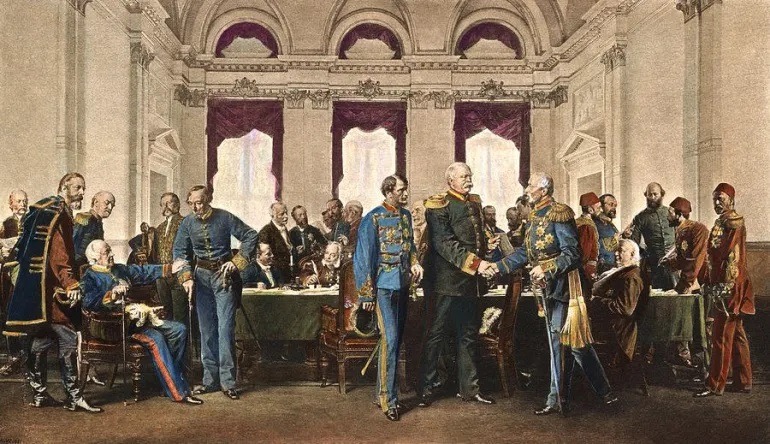The Berlin Conference of 1884

In the late 19th century, Europe was in the throes of an era marked by imperial ambitions and colonial expansion. Africa, with its vast territories and abundant resources, was a prime target for European powers seeking to carve out spheres of influence and assert dominance on the global stage. Amidst growing competition and rivalries, the Berlin Conference of 1884 emerged as a pivotal event that would shape the destiny of the African continent for generations to come.
The Berlin Conference of 1884
Understanding the Context
To appreciate the significance of the Berlin Conference, one must first grasp the historical context in which it took place. European colonial powers, including Britain, France, Germany, Belgium, Portugal, and Italy, were engaged in a frenzied scramble for African territories. Motivated by economic interests, strategic considerations, and notions of cultural superiority, these nations sought to expand their empires and exploit Africa’s wealth.
The Berlin Conference: Origins and Participants
The Berlin Conference was convened against the backdrop of escalating tensions and disputes over African territories. Concerned by the prospect of unregulated expansion leading to conflict, European leaders gathered in Berlin to negotiate and formalize their colonial claims. The conference brought together representatives from major European powers, with notable absentees being African leaders or representatives.
Agenda and Objectives
At the heart of the Berlin Conference was the desire to establish clear guidelines for colonial rule in Africa. European powers aimed to avoid conflicts over territorial disputes and regulate trade and navigation in African waters. Key objectives included the division of African territories among colonial powers and the imposition of rules governing colonial administration and conduct.
Deliberations and Decisions
During the conference, European powers engaged in deliberations and negotiations to divide Africa amongst themselves. Maps were drawn, borders were delineated, and territories were allocated with little regard for the cultural, linguistic, or historical realities on the ground. The doctrine of effective occupation emerged as a criterion for claiming territory, leading to the arbitrary demarcation of borders and the disruption of indigenous communities.
Consequences of the Berlin Conference
The consequences of the Berlin Conference were profound and far-reaching. The division of Africa into artificial boundaries created by European powers led to the fragmentation of indigenous societies and the imposition of foreign rule. African nations were subjected to exploitation and oppression, as European colonizers exploited their natural resources and imposed their values and systems upon them.
Criticism and Reassessment
In the years since the Berlin Conference, scholars and historians have criticized its legacy and the manner in which Africa was partitioned. The lack of African representation at the conference and the disregard for African sovereignty and self-determination have been subjects of particular scrutiny. Moreover, the lasting effects of colonialism, including economic underdevelopment, political instability, and social upheaval, continue to shape the trajectory of African nations to this day.

